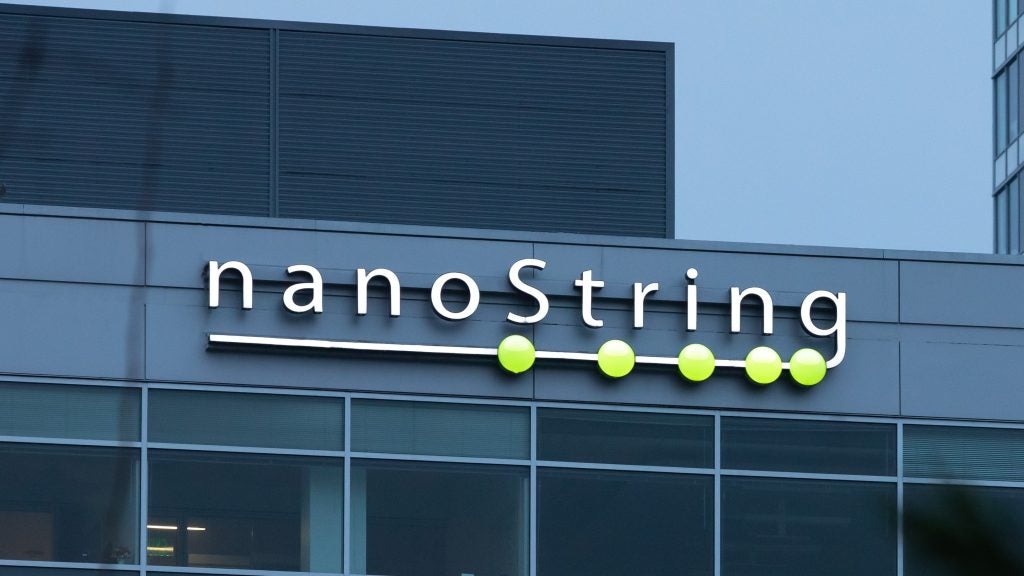
DeepMind develops AI tool to predict kidney disease in advance
Google division DeepMind has partnered with the US Department of Veterans Affairs (VA) to develop an artificial intelligence (AI) tool that could predict acute kidney injury (AKI) up to 48 hours in advance.
AKI, which occurs when a person’s kidney functions abnormally, is associated with quick deterioration. According to DeepMind, up to 30% of cases could be addressed with earlier intervention.
The company applied AI technology using a dataset that comprised de-identified electronic health records of 703,782 adult patients from 172 inpatient and 1,062 outpatient VA sites.
Siemens Healthineers to acquire Corindus Vascular Robotics for $1.1bn
Siemens Healthineers has signed a definitive agreement to acquire all fully diluted shares of US-based Corindus Vascular Robotics.
The deal is valued at $4.28 per share in cash or $1.1bn in total.
How well do you really know your competitors?
Access the most comprehensive Company Profiles on the market, powered by GlobalData. Save hours of research. Gain competitive edge.

Thank you!
Your download email will arrive shortly
Not ready to buy yet? Download a free sample
We are confident about the unique quality of our Company Profiles. However, we want you to make the most beneficial decision for your business, so we offer a free sample that you can download by submitting the below form
By GlobalDataCorindus develops, produces and sells robotic systems for minimally invasive procedures, while Siemens’ products use quality imaging before and during medical interventions to make minimally invasive treatment possible.
Virtual reality trialled to distract women from pain of childbirth
Women in labour are being given virtual reality (VR) headsets to wear during labour as part of a study to see if it can help them manage the pain of childbirth.
The trial, which is taking place at the University Hospital of Wales in Cardiff, could be rolled out across Wales if successful.
Wearers can choose from a range of VR experiences such as being submerged underwater, watching the Northern Lights or being at the beach to distract from the pain of giving birth.
FDA approves CVRx’s device to treat advanced heart failure
The US Food and Drug Administration (FDA) has approved CVRx’s Barostim Neo System to address symptoms in advanced heart failure patients.
The system is meant for patients who have a regular heart rhythm and are not suitable for other heart failure devices such as cardiac resynchronisation therapy.
Barostim Neo comes with a pulse generator, which can be implanted below the collar bone. The implant is connected to a lead that links to the carotid artery in the neck.
Boston Scientific completes $4.2bn acquisition of BTG
Boston Scientific has closed the acquisition of UK-based BTG, which provides products used in minimally-invasive procedures related to cancer and vascular diseases.
The companies signed an agreement covering the £3.3bn ($4.2bn) acquisition in November last year.
BTG operates Interventional Medicine, a speciality pharmaceutical and licensing business, which features interventional oncology technologies designed for liver and kidney cancers. It also includes a vascular portfolio to treat pulmonary embolism, deep vein thrombosis, superficial venous disease and deep venous obstruction.
Optic nerve stimulation offers hope for treating visual impairment
Researchers have developed a promising form of optic nerve stimulation that could help blind patients see light.
The technology, developed in a partnership between the École polytechnique fédérale de Lausanne (EPFL) in Switzerland and the Scuola Superiore Sant’Anna in Italy, bypasses the eyeball completely and sends messages to the brain.
Researchers made attempts to stimulate the optic nerve in the 1990s, with inconclusive results.
New test detects ovarian cancer earlier than other methods
A team of international researchers have created a test to enable diagnosis of ovarian cancer two years earlier than existing methods.
Queen’s University Belfast, the University of Manchester, the University of New South Wales Australia, University College London and the University of Milan were part of the team of creators.
Scientists developed the screening test using a biomarker panel of four proteins associated with epithelial ovarian cancer (EOC). It uses an algorithm to analyse a blood sample and identify any abnormal cancer-related protein levels.
US researchers develop skin sensors to wirelessly monitor health
Researchers at Stanford University in the US have developed new sensors that can be adhered to the skin for wireless health monitoring.
The sensors are designed to identify the physiological signals that the skin emanates, such as pulse. These readings will be wirelessly transmitted to a receiver clipped onto clothing. The sensor and receiver system has been named BodyNet.
To test the sensors, they were attached to the subject’s wrist and abdomen to track pulse and respiration by monitoring the way skin stretched and contracted with each heartbeat or breath.
Institut Pasteur test to predict cervical cancer in HPV patients
Researchers from Institut Pasteur in France have developed a two-fold test to predict the cervical cancer risk in women with human papillomavirus (HPV).
HPV is known to be responsible for 99% of cervical cancers. The virus is linked to complicated diagnosis and treatment.
The new in-vitro molecular test, named HPV RNA-Seq, is designed to identify the type of HPV infection as well as any precancerous markers of high-grade squamous intraepithelial lesions (HSIL).
AtriCure to acquire SentreHEART for up to $300m
Medical technologies firm AtriCure has signed a definitive agreement to acquire cardiac solutions developer SentreHEART for a total consideration of up to $300m.
The terms of the deal, which is subject to customary closing conditions, involves an upfront payment of around $40m in cash and AtriCure common stock.
The transaction also covers $140m contingent on milestones associated with the aMAZE investigational device exemption (IDE) clinical trial of LARIAT Suture Delivery Device, including premarket application (PMA) approval.








